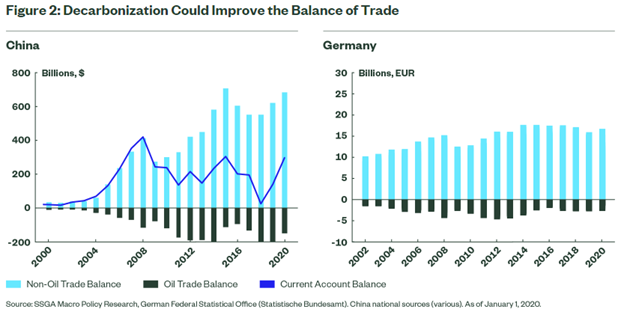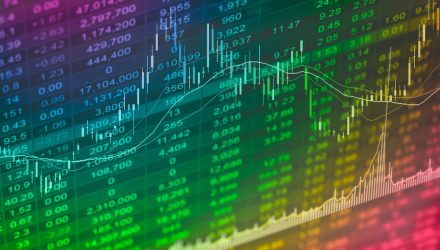The transition to net-zero carbon emissions for economies isn’t one that is going to happen in a bubble, but it will instead be a rapidly accelerating event that will send shocks throughout systems on all levels. Reasons for the acceleration include the recent COP26 summit, the secondary effects of decarbonization, and the positive feedback loops created from the climate change transition, according to a recent paper from State Street Global Advisors.
Investors who are banking on slow shifts to address climate change needs could be setting themselves up for a major surprise, and a huge loss within their portfolios, believes Carlo M. Funk, the EMEA head of ESG investment strategy at State Street Global Advisors. The transition by economies to low emissions is one that will have long-term implications and will impact regulations and economies on a multitude of levels.
Increasing Commitments to Emissions Reduction
The COP26 global climate summit that concluded mid-November may not have come away with any singular, world-changing solutions, but increasingly more countries have committed to more aggressive cutbacks and net-zero target dates. The summit also saw the creation of a global carbon market that would contain two different types of allowances, one for private and public industries, and one strictly for countries to trade with each other in the move towards global net-zero. It’s a step towards greater Paris Agreement enforcement and commitment, and a move that accelerates the transition timeline.
Changing Trade Balances and Benefits of Being at the Top
The secondary benefits that countries and companies can gain from reducing carbon emissions is another main reason that the transition could intensify rapidly. Countries would stand to gain a lot by being world leaders in the renewable energy transition, particularly as developed countries are the net importers of energy in economies that rely on fossil fuels as a primary energy source. Trade balances could be shifting in a new global economy that is no longer reliant on fossil fuels.

Image source: SSGA
“For example, geopolitical superpowers (the US, China, and Europe) are incentivized to stay on top of the race to become a climate leader because the transformation to a low-carbon economy will come with enormous opportunities (similar to other disruptive shifts, like digitalization),” writes Funk.
Feedback Loops Will Intensify the Transition
A third reason for a more rapid transition is the positive feedback loops that could potentially be created as countries move away from fossil fuels. Such feedback loops include the volume-cost loop, whereby fossil fuel volumes are reduced as they are used less, driving up the cost and further decreasing demand.
Another feedback loop is the expectations feedback loop, where renewable energy demand increases and fossil fuel industries begin to look less credible with the shifting of investor and policymaker perception.
One more important feedback loop to consider is the financial one; increased renewable energy growth creates more inflows from investors, which in turn decreases the cost of capital for renewable energy companies. This allows for green energy companies to continue to expand and grow, while also putting price pressure on fossil fuel companies.
“In addition, the broader society feedback loop, the politics feedback loop, and the geopolitics feedback loop will further accelerate this transformation. As society becomes more concerned with the climate crisis and comes to better understand the financial benefits of renewable technology, people will likely change their behavior,” Funk notes.
For more news, information, and strategy, visit the ESG Channel.

